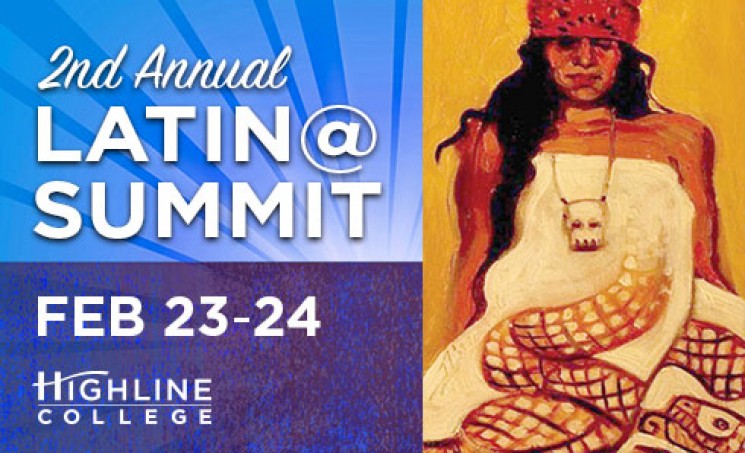Free and Open to All
February 23–24, 2016
8:30–11:50 a.m.
Highline Student Union (Building 8)
Come to campus for the second annual Latin@ Summit. The two-day event will include workshops and speakers designed to provide Latino students with the tools they need for success in higher education and beyond. The free summit is open to all.
Watch the Latin@ Summit video to hear from students who attended the 2015 Latin@ Summit and learn why you should attend this year’s event.
Are you curious about the artwork used in the Latin@ Summit image above? Read the story behind “Chingon Hermana Who Wears the Serpent Dress (Coatlicue)” and learn about the artist.
Questions?
Contact Cesar Rangel at crangel@highline.edu or (206) 592-4672.
Schedule
Tuesday, February 23, 2016
8:30-8:45 a.m.: Opening and Welcome
Toni Castro
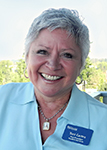 Toni Castro, who serves as Vice President for Student Services at Highline College, will provide Tuesday’s opening remarks.
Toni Castro, who serves as Vice President for Student Services at Highline College, will provide Tuesday’s opening remarks.
The grandchild of Mexican immigrants, she was the first in her family to graduate from college.
Castro has been at Highline since 1996.
8:50-9:50 a.m.: Session I
Joshua Magallanes, LMHCA, NCC
Intersections of Identity: A Look at Sexual Orientation As an Identity in the Latino Community
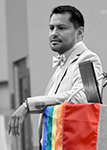 Have you ever wondered how sexual orientation and gender play a major role in your identity? Many communities of color think of sexual orientation and gender as topics that are taboo and shouldn’t be explored beyond the family. In this interactive session, you will explore how sexual orientation and gender play a role in your identity as a Latino.
Have you ever wondered how sexual orientation and gender play a major role in your identity? Many communities of color think of sexual orientation and gender as topics that are taboo and shouldn’t be explored beyond the family. In this interactive session, you will explore how sexual orientation and gender play a role in your identity as a Latino.
After earning his bachelor’s degree from Northern Arizona University, Magallanes moved to Seattle in February 2004 and began working at Highline that fall where he is currently a faculty member teaching in both the Human Services and Diversity and Globalism Studies departments. His classes include “The LGBTQI Experience.”
Magallanes earned his master’s degree in community counseling from Seattle University. He has worked in higher education for the past 13 years for both universities and colleges. Through his work, Magallanes explores the societal expectations placed on communities of color and queer communities across the region, state and nation as a way to continue to raise awareness and create change through facilitated workshops and presentations.
Magallanes has spoken and led workshops at the Students of Color conference, annual American Counseling Association conference and Black and Brown Male Summit, and has also sat on boards for scholarship selections. Joshua is the committee chair for the LGBTQIA Task Force at Highline College and served on the board of directors for Gay City Men’s Health Project.
Additionally, he provides therapy in his private practice for individuals, couples and families and facilitates process groups. His special interest areas for therapy are working with students who have depression or anxiety, sexual identity/orientation, oppression awareness and career/life exploration. He has also worked as a consultant for Edmonds School District, where he provided professional development for K–12 staff and administrators.
Magallanes believes the developmental process is never a road that is paved or less traveled; the way we travel it and experience it are what makes us marvel at the amazing products along the way.
In his free time, Magallanes enjoys playing and coaching softball, traveling to new places, enjoys white water rafting, camping and fishing under the liquid sunshine, and spending time with family and friends.
*LGBTQIA = lesbian, gay, bisexual, transgender, questioning or queer, intersex, ally (a friend of the cause) or asexual
Elizabeth Rangel
Are You So Different Than I Am?
 Within our society and communities, stereotypes are used to classify a person or generalize a group. In this workshop, we will explore the cultural biases and stereotypes that we have within the Latino community. Where do stereotypes derive from? What effects do they have on us? We will be discussing the attitudes behind why we use them. Are we so different or can we see each other as a community and as individuals?
Within our society and communities, stereotypes are used to classify a person or generalize a group. In this workshop, we will explore the cultural biases and stereotypes that we have within the Latino community. Where do stereotypes derive from? What effects do they have on us? We will be discussing the attitudes behind why we use them. Are we so different or can we see each other as a community and as individuals?
9:55-10:45 a.m.: Session II
Iesha Valencia
Leadership and Identity: Knowing Ourselves and Others
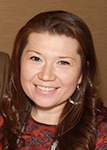 Who are you? Such a simple question leads you to answers full of complexity, mystery, honesty and authenticity. During the workshop, we will explore this question in an interactive way, allowing you to tap into what it feels like to express yourself while witnessing firsthand the gift of storytelling. When we share our whole self with others, we automatically create room for others to do the same. Join us in a creative workshop aimed at understanding how we lead at the intersections of our identities.
Who are you? Such a simple question leads you to answers full of complexity, mystery, honesty and authenticity. During the workshop, we will explore this question in an interactive way, allowing you to tap into what it feels like to express yourself while witnessing firsthand the gift of storytelling. When we share our whole self with others, we automatically create room for others to do the same. Join us in a creative workshop aimed at understanding how we lead at the intersections of our identities.
Having a passion for working with college students who are the first in their family to go to college led her to graduate school. In 2009, Valencia earned her M.Ed. in higher education and student affairs from the University of Vermont and has since worked with college students at the University of Vermont, Seattle University and now Highline College. Valencia is currently the Assistant Director for Student Leadership in the Center for Leadership and Service at Highline College.
Dr. Melissa Moehlig and Dr. Sharon Rivera
College Student for a Day
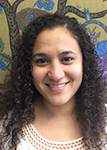 Many Latinos are first-generation college students and as such, do not know what to expect when attending college.
Many Latinos are first-generation college students and as such, do not know what to expect when attending college.
This session will focus on typical challenges first-generation college students face as well as tips for succeeding.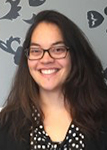
We will end the session with a fun, hands-on chemistry demonstration.
Sharon Rivera: Rivera earned her bachelor’s degree in chemistry from the State University of New York College at Purchase. As an undergraduate student in chemistry, she conducted a three-year research project in organic synthesis of heterocyclic selenocyanates. She went on to earn her Ph.D. in physical chemistry at Syracuse University. Her work focused on thermodynamics, polymorphs and neutron scattering, which gave her experience in organic synthesis and computational methods.
10:50-11:20 a.m.: Lunch
11:30-11:50 a.m.: Closing
Wednesday, February 24, 2016
8:30-8:45 a.m.: Opening and Welcome
Dr. Rolita Ezeonu and Jeff Wagnitz
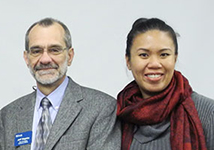 Wednesday will begin with a welcome and opening remarks from Highline College’s Dr. Rolita Ezeonu and Jeff Wagnitz.
Wednesday will begin with a welcome and opening remarks from Highline College’s Dr. Rolita Ezeonu and Jeff Wagnitz.
Ezeonu, who has been at Highline since 2001, serves as Dean of Instruction.
Wagnitz is Vice President for Academic Affairs and has been at the college since 2000.
8:50-9:50 a.m.: Session I
Dr. Francisco Orozco and Tracy Carrera
Latin@ Youth
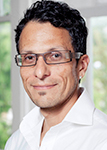 Learn from Dr. Francisco Orozco about the contributions Latinos have made to U.S. popular music history, both as participants in it and academics who research and write about it.
Learn from Dr. Francisco Orozco about the contributions Latinos have made to U.S. popular music history, both as participants in it and academics who research and write about it.
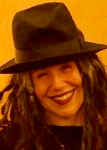 During this session, you will also hear from Tracy Carrera. She will discuss how U.S. pop culture and her upbringing has influenced her self-identification as a Chicana, which has been a source of strength and pride in her creative career as a sensual impressionist painter.
During this session, you will also hear from Tracy Carrera. She will discuss how U.S. pop culture and her upbringing has influenced her self-identification as a Chicana, which has been a source of strength and pride in her creative career as a sensual impressionist painter.
Originally from Oakland, Calif., Orozco arrived in Seattle in 2003 to pursue his academic interests in son jarocho and fandango and Latino popular music in the U.S. He eventually earned a doctorate degree in ethnomusicology in 2012 from the University of Washington.
Some of his collaborative work over the years has included researching the “Chicano Soul” scene of 1960s San Antonio; working as associate curator on the ground-breaking exhibit “American Sabor: Latinos in U.S. Popular Music;” and teaching in the departments of Music and American Ethnic Studies at the UW.
He is involved in the Pacific Northwest’s cultural arts community, including the art of capoeira, the Seattle Fandango Project, and De Cajon Project, an Afro-Peruvian “artivist” group.
Tracy Carrera: Carrera is a professor of fine art in the Department of Art and Design at Highline College. She enjoys teaching drawing, oil painting, figurative drawing and mural design.
Her paintings have been featured in galleries throughout the Southwest and the East Coast and on television programs. Before moving from New Mexico to Washington to teach at Highline, her creative interests led her to be involved with New Mexico’s budding film industry.
She draws inspiration from her family. She has an identical twin sister she adores and often paints her. Carrera’s father was an artist/Chicano activist and Shaman. He shared with her his love of natural healing using foods and herbs.
Carrera earned her BFA and MFA in painting/illustration from Utah State University.
She also studied Curanderismo (traditional Mexican healing) with Dr. Eliseo “Cheo” Torres. Her paintings often include imagery relating to food and plants as medicine, food safety, freedom and empowerment in all forms.
Learn more about Carrera and her contributions to the Latino Summit in the story below, “Local Artist and Educator Lends Time and Talent to Latino Summit.”
Doris Martinez
Unwrapping Our Labels: Status? It’s Complicated!
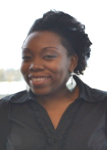 As Latinos, defining yourself as such is only the beginning of understanding your identity. The truth is, it’s complicated with various layers. In this interactive workshop, we will explore the origins of Latino identity, address stereotypes that are present in our communities and learn ways to begin understanding the diverse intersections of Latino identity.
As Latinos, defining yourself as such is only the beginning of understanding your identity. The truth is, it’s complicated with various layers. In this interactive workshop, we will explore the origins of Latino identity, address stereotypes that are present in our communities and learn ways to begin understanding the diverse intersections of Latino identity.
Transitioning back to American life also meant being questioned about race and identity. For Martinez, it was foreign and uncomfortable. The complexities of being Latina of African descent were challenging throughout her K–12 experience, but it was an identity that Martinez embraced as her educational scope increased throughout her undergraduate college student experience at Highline College. Upon graduating from Highline in 2007, she continued her studies at Seattle University where she earned a bachelor’s degree in strategic communications in 2009 and a master’s degree in student development administration in 2011.
After working at LaSalle University in Philadelphia, Martinez returned to Highline College and now serves as Director for Student Diversity and Inclusion. Her goal is to provide students a safe space to discuss social injustices, equity and inclusion and to empower students to be change agents in their communities. When she is not running throughout campus, you can catch her in her office in the Center for Leadership and Service (Building 8, 3rd floor) socializing with students and dancing to her favorite tropical Latin music. Azúcar!
9:55-10:45 a.m.: Session II
Joe Aguilar
On to the Next One: How First-Generation Students Can Successfully Transition from High School to College
 Being a first-generation college student has its advantages and challenges. This engaging workshop will focus on what it means to be a first-generation college student. And, it will give you the tools necessary to be a successful college student and take your game to the next level.
Being a first-generation college student has its advantages and challenges. This engaging workshop will focus on what it means to be a first-generation college student. And, it will give you the tools necessary to be a successful college student and take your game to the next level.
Like many students do, Aguilar went through many obstacles and hardships during college, but he was able to earn his bachelor’s degree in communications and society with an emphasis in organizational development. Currently, he is an academic adviser at Highline College, guiding students into the paths to achieve their dreams. He is also involved in many initiatives that promote higher education within the community.
Aguilar plans on pursuing his master’s degree in higher education administration at the University of Washington. His career goals include becoming a director of a student services program and possibly a vice president or dean within a higher education institution. His passion is helping students of all backgrounds reach their academic, career and personal goals.
Adam-Jon Aparicio, LMHCA, NCC
Sexual Orientations
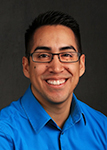 What does sexual orientation mean? In this session we will have an open conversation about issues we may find intimidating or even confusing. We will explore diverse identities within the Latino community, learn how to have tough conversations about difference, and examine how to support people in our lives who may experience hate simply because of who they love.
What does sexual orientation mean? In this session we will have an open conversation about issues we may find intimidating or even confusing. We will explore diverse identities within the Latino community, learn how to have tough conversations about difference, and examine how to support people in our lives who may experience hate simply because of who they love.
10:50-11:20 a.m.: Lunch
11:30-11:50 a.m.: Closing
Curious About the Art?
Local Artist and Educator Lends Time and Talent to Latino Summit

Tracy Carrera, Highline College fine art instructor
As a Latina educator, participating in Highline College’s upcoming Latino Summit on February 23–24 is especially meaningful for artist Tracy Carrera.
In addition to co-leading a workshop session, Carrera gave permission for one of her paintings to be used in materials promoting the two-day event.
“When I was asked to be a part of this year’s Latino Summit, I was so proud and so excited, and I thought this image matched the richness and boldness and strength of what the Latino Summit is all about,” said Carrera, who joined Highline’s faculty in 2013 as a fine art instructor.
During her talk, she will reference that painting, a 2003 piece titled “Chingon Hermana Who Wears the Serpent Dress (Coatlicue).”
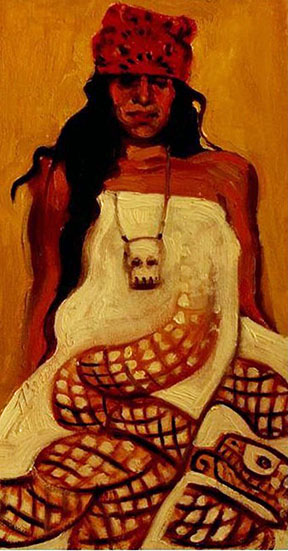
“Chingon Hermana Who Wears the Serpent Dress (Coatlicue)” by Tracy Carrera, 2003, oil on canvas (image courtesy of the artist)
The image depicts Carrera’s version of the Aztec primordial earth goddess. The inspiration was Carrera’s identical twin sister Randi, who had conquered her seven-year-long methamphetamine addiction.
“In the painting, my sister is wearing a red bandanna, which speaks to the working class background we come from,” said Carrera.
Her expression—calm, looking forward at the viewer—shows a woman who is unashamed and triumphant.
The oil painting’s rich earthy colors—such as yellow ocher, cadmium red and oxide brown—reflect Carrera’s Southwestern influences.
Born and raised in Utah, she earned her BFA and MFA in painting and illustration from Utah State University. She also spent a number of years living in California and New Mexico before coming to Washington. She now lives in Kent.
The serpent adorning the woman’s dress “has special meaning to me as a Chicana. Quetzalcoatl is the plumed serpent, a Mesoamerican deity, known as the god of wind and learning. I enjoy referencing Mesoamerican iconography in my work. I’m proud of my culture.”
That pride is something she intends to share with summit attendees when she discusses how U.S. pop culture and her upbringing has influenced her self-identification as a Chicana, which has been a source of strength and pride in her creative career as a sensual impressionist painter.
“I’m so proud to be working with my Latino/a colleagues as part of the Latino Summit Committee. All of us on the committee want to empower Latino/a youth to embrace higher education and knowledge. It is our right and our duty to know ourselves and the world so we can contribute our special gifts to the world.”
The second annual summit will bring together high school and college students from the south King County community to learn and celebrate. The two-day event will include workshops and speakers designed to provide Latino students with the tools they need for success in higher education and beyond. (See full schedule above.)
Guest speakers, including educators and graduates from Highline College, will share both their professional and personal experiences with attendees.
The summit is an extension of Highline’s commitment to diversity, social justice and multiculturalism for which the college has earned several awards and recognition.
For the third straight year, Highline received the Higher Education Excellence in Diversity (HEED) Award, a national honor recognizing U.S. colleges and universities that demonstrate an outstanding commitment to diversity and inclusion. Given by Insight into Diversity magazine, the 2015 HEED Award was presented to only 92 institutions across the nation.
In 2014, the college received a prestigious Award of Excellence from the American Association of Community Colleges for increasing diversity and social equity on campus. Highline was one of six colleges in the nation earning recognition and won in the Advancing Diversity category.
Highline serves the most diverse community in the state, which is mirrored in its student population that includes approximately 70 percent students of color, 19 percent of whom are Hispanic/Latino.

